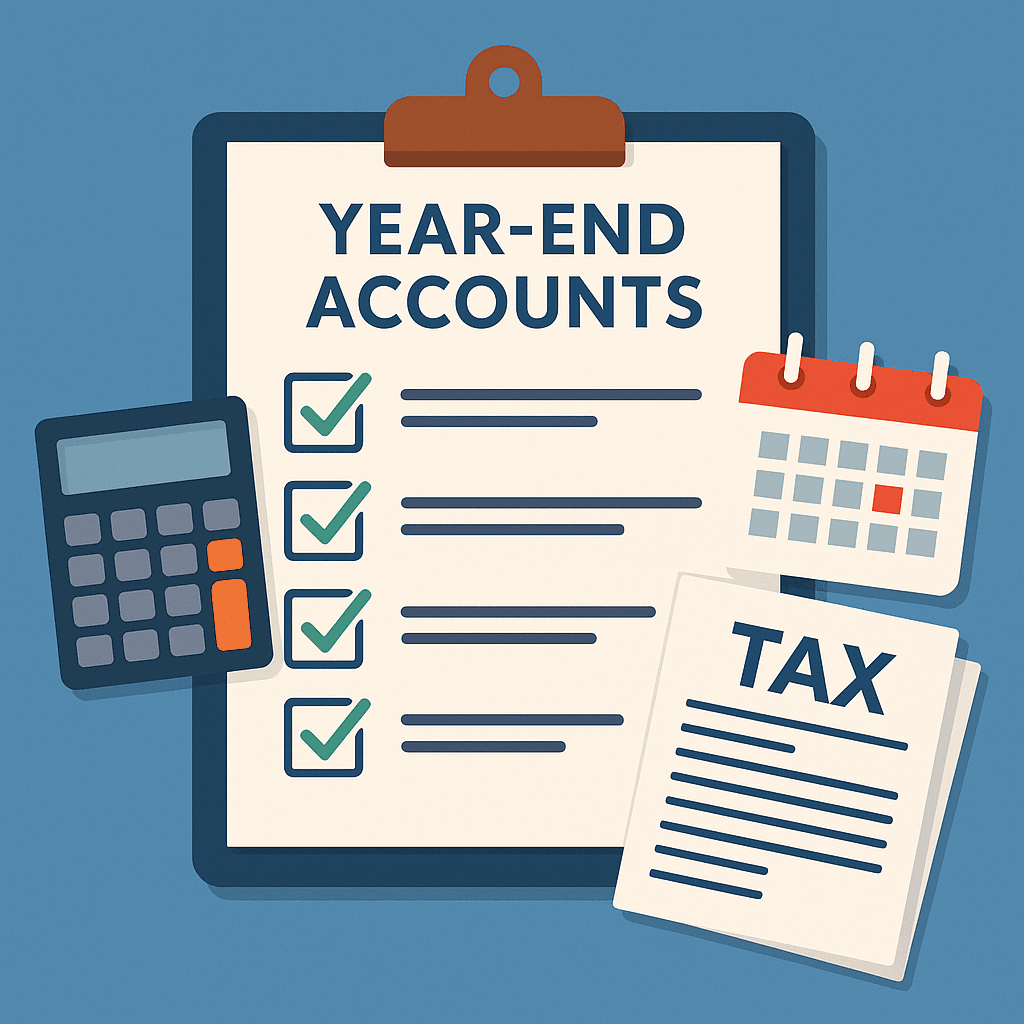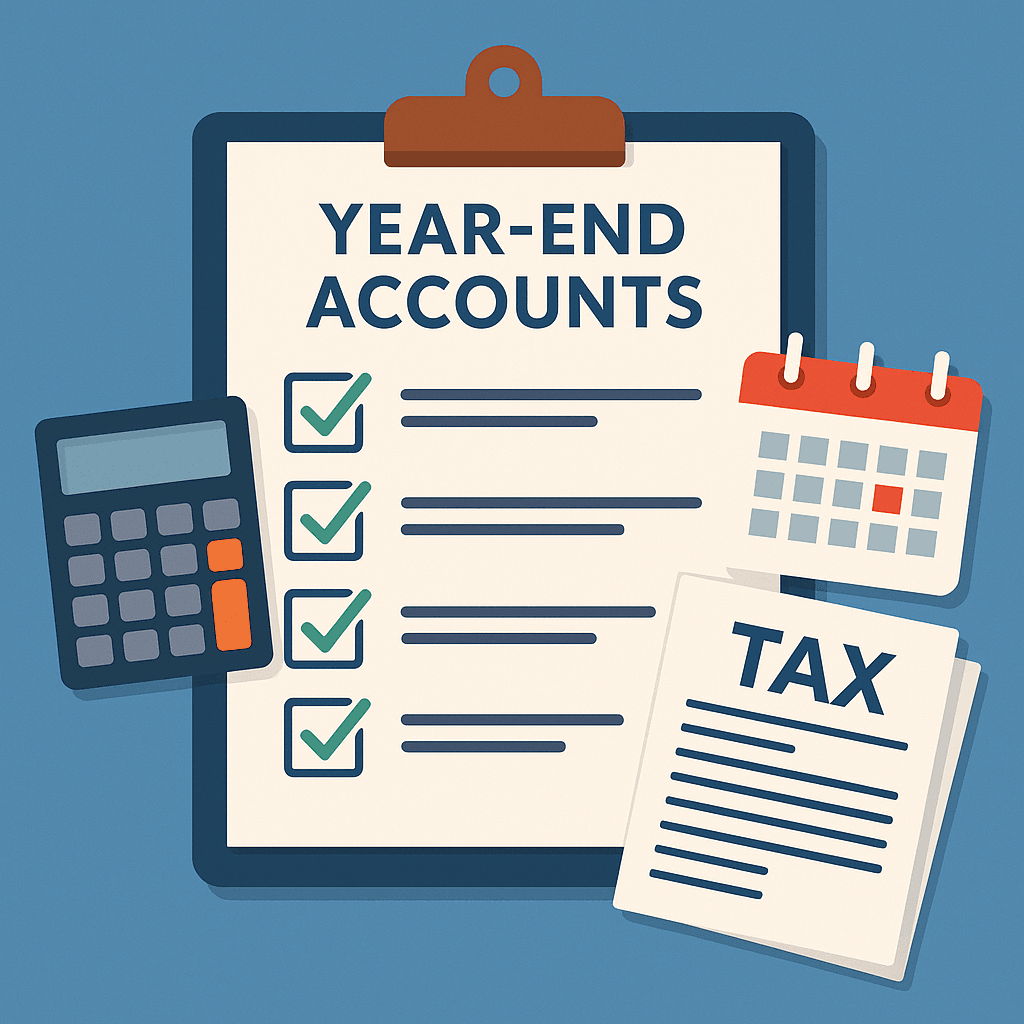For many small business owners, bookkeeping is the task that gets pushed to “next week” again and again—until suddenly you’re staring at months of unrecorded expenses, missing receipts, unreconciled bank accounts, and unanswered queries from HMRC or your accountant. It’s easy to assume that a backlog is just an inconvenience, something you can deal with later. But in reality, bookkeeping delays cost far more than lost time. They can directly hurt your cash flow, profitability, tax position, and even your long-term stability.
If you’ve found yourself juggling spreadsheets late at night or wondering where your money has gone, this blog explains why allowing your bookkeeping to build up is riskier than you think—and how to clear the backlog quickly and keep it under control for good.
The Hidden Costs of Bookkeeping Backlogs
Most small businesses underestimate the ripple effects a backlog creates. But the impact spreads across your operations, finances, and compliance without you even realising.
1. Poor Cash Flow Awareness
When your records aren’t up to date, it’s almost impossible to know:
- How much money is really in your account
- What payments are still outstanding
- Which customers owe you money
- Whether you can afford your next tax bill or payroll run
This leads to unnecessary stress and poor decision-making—often forcing business owners to rely on guesswork rather than reliable data.
2. Missed Tax Deductions and Higher Bills
If receipts and invoices aren’t captured promptly, they often get lost or forgotten. That means you miss legitimate expenses that could reduce your tax bill.
Common examples include:
- Fuel and mileage
- Equipment purchases
- Software subscriptions
- Professional services
- Home office costs
Every unclaimed expense increases the tax you pay—unnecessarily.
3. Late Filing Penalties from HMRC
Bookkeeping delays often push you dangerously close to tax and accounts deadlines.
This increases the risk of:
- PAYE errors
- VAT miscalculations
- Late VAT returns
- Incorrect self-assessment submissions
- Corporation Tax penalties
HMRC penalties escalate quickly, making a backlog far more expensive than regular bookkeeping.
4. Incorrect Pricing and Costing Decisions
When your books are behind, you can’t accurately see:
- How much it costs to serve each customer
- Whether certain products are profitable
- If you’re undercharging
- Whether labour or materials are creeping up
This often leads to long-term price problems that quietly drain profits.
5. Difficulty Obtaining Finance or Credit
Banks and lenders require updated financial records for:
- Loans
- Overdrafts
- Equipment finance
- Commercial mortgages
A bookkeeping backlog means you can’t supply what lenders need, making it harder to secure funding when you need it most.
6. Stress, Lost Time, and Operational Inefficiency
Trying to untangle months’ worth of transactions is far more time-consuming than logging them regularly.
A backlog makes:
- Monthly reviews harder
- VAT more complex
- Payroll more chaotic
- Accountant fees higher (because there’s more work)
And the stress of uncertainty often weighs heavily on business owners.
How to Fix Bookkeeping Backlogs Fast
The good news: no matter how far behind you feel, it is absolutely fixable. Here’s how to regain control quickly.
1. Start With a Bank Reconciliation
Everything begins with your bank statements.
Your first step is to:
- Download all statements for the period
- Match every transaction
- Correct any duplicated or missing entries
Once your bank is reconciled, you have a clean foundation to build on.
2. Gather All Receipts and Invoices
Search through:
- Emails
- Online accounts
- Card statements
- App purchases
- Delivery notes
- Supplier portals
Don’t worry if some receipts are missing—your accountant can often help recreate or justify them.
3. Categorise Expenses Properly
Mis-categorised expenses can distort profit reports and cause VAT or tax problems.
Make sure each cost is allocated to the right category:
- Travel
- Materials
- Subcontractors
- Office expenses
- Utilities
- Motor expenses
If you’re unsure, your accountant can review and correct entries.
4. Prioritise VAT, Payroll, and Deadlines
If you have VAT returns or PAYE submissions due, focus on these areas first. It reduces your risk of penalties while the rest is being sorted.
5. Move to Cloud Accounting to Prevent Future Backlogs
The easiest way to avoid this ever happening again is to switch to cloud software such as:
- Xero
- QuickBooks
- FreeAgent
Features like bank feeds, receipt scanning, and automatic categorisation make bookkeeping quicker and far more accurate.
6. Outsource Bookkeeping If It’s Not Your Strength
For many small business owners, the problem isn’t ability—it’s time. Outsourcing your bookkeeping ensures:
- No more backlogs
- No more missed receipts
- No more deadline stress
- Clear monthly financial reports
- Predictable accounting costs
A good accountant or bookkeeping service will keep you on track while you focus on running the business.
Final Thoughts
Bookkeeping backlogs don’t just make your records messy—they create real financial risks that can cost your business far more than you realise. But with the right process, tools, and support, you can get back on top quickly and protect your business from unnecessary tax, compliance, and cash flow problems.
Whether you need help catching up or want ongoing monthly support, DD Accounting can take the pressure off and help you stay organised, compliant, and financially confident all year round.




